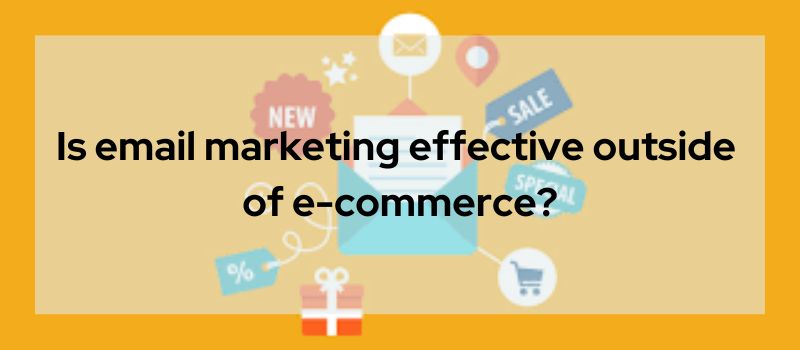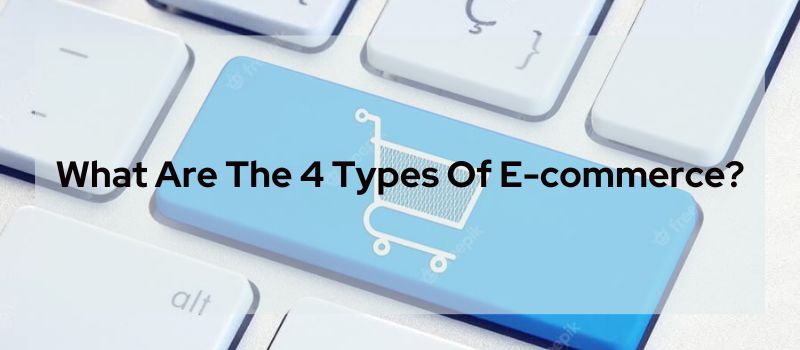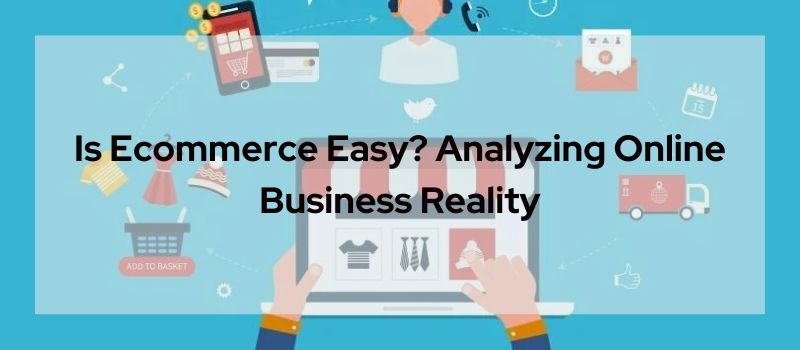Is email marketing effective outside of e-commerce? Definitely, email marketing can be extremely effective for many business types beyond just e-commerce retail. The key is crafting campaigns that speak to your audience’s specific interests and goals. With strategic email execution, you can drive results across industries.
Contents
- 1 What is Email Marketing for Ecommerce?
- 2 Why Do Email Marketing and E-Commerce Work Together?
- 3 Why is Email Marketing Important for E-Commerce?
- 4 Email Marketing Strategies and Best Practices for Ecommerce
- 4.1 Offer an Email Signup Incentive
- 4.2 Send New Arrival Announcements
- 4.3 Promote Sales and Deals
- 4.4 Highlight Best Sellers
- 4.5 Share User-Generated Content
- 4.6 Send Cart Abandonment Emails
- 4.7 Collect Reviews
- 4.8 Send Post-Purchase Surveys
- 4.9 Use Segmentation and Personalization
- 4.10 Test Different Email Components
- 5 Choosing the Best Email Marketing Platforms and Services for Ecommerce
- 6 Is Email Marketing Effective Outside of E-Commerce?
- 7 Why Email Marketing Works for All Businesses
- 8 Email Marketing Success Stories Beyond E-Commerce
- 9 Best Practices for Effective Non-E-Comm Email Campaigns
- 10 Alternatives for Businesses Without E-Commerce
- 11 The Importance of List Building and Engagement
- 12 FAQs
- 12.1 Q1: Does email marketing work for lead generation?
- 12.2 Q2: What types of emails should nonprofits send?
- 12.3 Q3: How can schools use email marketing?
- 12.4 Q4: Can email help B2B companies generate leads?
- 12.5 Q5: How do media companies use email marketing?
- 12.6 Q6: What metrics indicate an effective email campaign?
- 13 Conclusion
What is Email Marketing for Ecommerce?
E-commerce businesses rely heavily on email marketing to promote products, drive sales, and build lasting customer relationships. But what exactly is email marketing in the ecommerce context?
In short, ecommerce email marketing refers to sending commercial emails to lists of current or potential online shoppers. The goal is to inform, educate, and persuade recipients to purchase or complete other conversion actions.
WE have been the Email Marketing for Ecommerce experts for more than ten years; in this blog post, we’ll tell you how email and ecommerce work so well together, the importance of email for ecommerce success, and strategies to maximize your email marketing ROI.
Why Do Email Marketing and E-Commerce Work Together?
There are several key reasons why email and ecommerce are an ideal marketing match:
Direct Channel to Customers
Email provides a direct line of communication to inform customers about new arrivals, sales, special offers, and more. There is no need for intermediaries or algorithms – you control the messaging.
Drives Traffic and Sales
Email Marketing for Ecommerce is one of the top referral sources to ecommerce sites. Promotional emails boost awareness and incentivize purchases. Abandoned cart emails help recover lost sales.
Segmentation and Personalization
Email Marketing for Ecommerce allows granular segmentation based on past purchases, product preferences, demographics, location, and more. You can then personalize content and offers accordingly.
Immediacy and Convenience
Emails deliver promotions, coupons, and discounts directly to customer inboxes. It makes taking advantage quick and convenient compared to visiting the website.
Cost-Effective Channel
The cost per email sent is inexpensive. Bulk-sending software makes large-scale campaigns affordable. The revenue generated far outweighs the costs.
Analytics and Optimization
Email Marketing for Ecommerce software provides robust metrics like open rates, clickthroughs, and conversions. You can continually fine-tune Email Marketing for Ecommerce to maximize results.
With these advantages, it’s easy to see why email marketing plays a central role in every ecommerce marketing strategy. But what makes it so crucial for ecommerce success?

Why is Email Marketing Important for E-Commerce?
Here are some of the key reasons email marketing is critical for ecommerce businesses:
Increase Brand Awareness
Promotional emails get your brand and products in front of customers regularly, reinforcing brand familiarity and visibility.
Acquire New Customers
Lead-generation emails help turn prospects into first-time buyers. Giveaways, coupons, and newsletters collect new email subscribers.
Engage Existing Customers
Ongoing email nurturing strengthens relationships with past customers, encouraging repeat purchases and loyalty.
Promote New Products
Emails inform customers about new product launches and inventory so they buy the items they want.
Run Targeted Campaigns
Segment customers for tailored promotions based on past purchase behavior, interests, demographics, and other attributes.
Offer Incentives and Deals
Coupons, sales alerts, free shipping offers, and other promotional emails entice purchases.
Recover Abandoned Carts
Abandoned cart Emails Marketing for E-commerce Remind customers about items left in their cart and provide incentives to complete the purchase.
Collect Feedback and Data
Surveys and questionnaires gather customer opinions and preferences to inform product selection and improvements.
Build Trust and Goodwill
Regular, valuable emails demonstrate that you respect customers’ time and provide a good experience. It earns loyalty.
Without the marketing firepower of email, ecommerce businesses lose out on new and existing sales. That’s why email should anchor any ecommerce marketing plan.
Email Marketing Strategies and Best Practices for Ecommerce
Now that we’ve covered why email and ecommerce work together, let’s look at some proven email marketing strategies and best practices for ecommerce success:
Offer an Email Signup Incentive
Entice customers to join your email list by offering a discount, free shipping, or exclusive content in exchange for their email address. Grow your subscriber base.
Send New Arrival Announcements
Inform customers about new products added to your inventory so they can purchase items they want right away.
Promote Sales and Deals
Offer time-limited discounts, percentage-off coupons, BOGOs, gifts, and other promotions to incentivize purchases.
Highlight Best Sellers
Showcase your current best-selling items so customers know what’s hot and trending. People tend to buy more popular products.
Display customer reviews, testimonials, photos, and videos of real people enjoying your products. It provides social proof.
Send Cart Abandonment Emails
Remind customers about items left in their cart and offer discounts or free shipping if they complete their purchase.
Collect Reviews
Ask satisfied customers to leave positive reviews on your website, Google, Facebook, etc., to build credibility.
Send Post-Purchase Surveys
Gather customer feedback about their purchase experience for product/service improvements.
Use Segmentation and Personalization
Divide your list based on past purchases, interests, demographics, etc., and tailor content accordingly for higher engagement.
Test Different Email Components
Try various subject lines, content formats calls to action, and send times to determine what works best.
Following email marketing best practices tailored to ecommerce can boost sales, retain more customers, and maximize ROI. But quality execution is just as important as strategy.

Choosing the Best Email Marketing Platforms and Services for Ecommerce
To achieve the full potential of your ecommerce email marketing, you need a robust email service provider (ESP) designed for ecommerce needs. Here are vital capabilities to look for:
- Segmentation and personalization – For tailored messaging aligned to customer attributes
- Automation – For workflows like abandoned cart and browse abandonment emails
- Analytics – To track email performance and fine-tune campaigns
- Deliverability – Ensure emails reliably reach the inbox and avoid spam filters
- List growth tools – Options to capture more email subscribers
- Ecommerce templates – Professionally designed, branded email templates
- Integrations – Connect your ESP to your ecommerce platform, CRM, etc.
Some top email service providers purpose-built for ecommerce include Klaviyo, Omnisend, and Mailchimp. Look for one that aligns with your ecommerce stack and marketing needs.
Is Email Marketing Effective Outside of E-Commerce?
Email marketing has become one of businesses’ most powerful digital marketing channels. Many still believe that email marketing strategy for ecommerce
works best for e-commerce stores promoting products and driving sales.
Is this true? Or can email marketing also deliver results for businesses outside of direct e-commerce?
Further, we’ll examine why email marketing works for all kinds of businesses, look at success stories beyond e-commerce, and outline best practices to make your non-e-commerce email campaigns successful.
Why Email Marketing Works for All Businesses
There are several key reasons why email marketing can be highly effective even if you don’t sell products directly through your emails:
Builds Relationships and Trust
Email allows you to have consistent, ongoing communication with your subscribers. It helps build familiarity and trust over time. The more value you provide through your emails, the stronger your relationship will become.
Allows Personalized, Targeted Communication
One of the main benefits of email is the ability to segment your list and target different groups with tailored messaging. To boost engagement, you can personalize content based on subscriber demographics, interests, and behaviors.
Drives Traffic and Leads to Your Website
Calls-to-action in your emails like “Download this free guide” or “Register for our upcoming webinar” allow you to drive qualified traffic and capture leads. It is invaluable for lead generation.
Low Cost Compared to Other Marketing Channels
Sending emails only incurs a small cost per send. Many email marketing agencies for ecommerce offer excellent deliverability and analytics tools for free up to a particular subscriber threshold. This makes it one of the most cost-efficient marketing channels.
As you can see, the email marketing agency for ecommerce offers advantages whether you have an e-commerce shop, sell services, run a nonprofit, or anything in between. Now, let’s look at some real-world examples of email success outside of direct e-commerce sales.

Email Marketing Success Stories Beyond E-Commerce
Many organizations outside of traditional retail have found great success with email marketing campaigns:
Nonprofit Fundraising and Promoting Events
- Send appeals for donations and highlight impact stories
- Promote upcoming fundraisers, volunteer days, and other events
- Share newsletters and impact reports to engage donors
B2B Companies Generating Leads
- Send educational content like ebooks, tip sheets, and webinars
- Promote content upgrades, access to gated assets, free consultations
- Nurture leads through targeted drip campaigns
Schools and Universities Engaging Students/Alumni
- Share school news, events, internship opportunities, etc.
- Send alum magazines and fundraising appeals
- Promote alum networking events and continuing education programs
Media Companies Driving Subscriptions and Engagement
- Encourage subscriptions with special offers just for email subscribers
- Share exclusive previews of upcoming articles, podcasts, or videos
- Promote contests and community engagement
These examples demonstrate the versatility of email marketing for all kinds of organizations outside of e-commerce product promotion. But what are some best practices for making non-e-commerce email campaigns succeed?

Best Practices for Effective Non-E-Comm Email Campaigns
To maximize the impact of your email marketing for ecommerce if you don’t directly sell products, keep these tips in mind:
Offer Exclusive, Valuable Content to Subscribers
Please give your email subscribers access to unique content they can’t get elsewhere. This could include ebooks, tip sheets, webinars, videos, discounted tickets to an event, early access to new products, etc.
Segment and Personalize Based on Interests and Behaviors
Divide your list into groups with shared interests and preferences. Then, tailor your messaging, offers, and content to each group to boost relevance. Personalization dramatically improves open and clickthrough rates.
Test Different Subject Lines, Content Types, and Timing
Try different email marketing for ecommerce styles and formats to determine what resonates best with your subscribers. See which subject lines drive more opens. Evaluate how content types like articles vs. infographics perform. And test sending at different days/times. Analyze results to optimize future campaigns.
Track Opens, Clicks, and Conversions to Optimize
Make sure you’re using email marketing software with robust analytics capabilities. Closely monitor open and clickthrough rates. See which messages generate the most web traffic, leads, and sales. Fine-tune your emails based on these insights.
Let’s look at some effective call-to-action alternatives if you don’t sell products directly through your emails.
Alternatives for Businesses Without E-Commerce
If you don’t have products to sell through your email campaigns, use these intelligent call-to-action strategies instead:
Calls-to-Action for Content Downloads, Event Signups, etc.
- Offer an exclusive whitepaper, ebook, or other gated content in exchange for an email address
- Promote signups for webinars, summits, conferences, and other online or in-person events
- Encourage newsletter signups, survey participation, or requests for information
Landing Pages and Forms to Capture Leads
- Send traffic to tailored landing pages with lead gen forms for free trials, content offers, consultations, etc.
- Use multi-step signup flows and progressive profiling to gather lead information over time.
Surveys and Questionnaires to Gather Data
- Ask for feedback and insights through email-based surveys and polls
- Gather subscriber preferences, interests, and information through profiling questionnaires
While the call-to-action may differ if you don’t sell products directly, the fundamental keys to email marketing for ecommerce success remain the same.
The Importance of List Building and Engagement
Regardless of your business model, there are two foundational pillars for effective email marketing:
Grow Your List by Offering Opt-In Incentives
- Run giveaways, contests, and free content promotions to grow your list
- Have signup forms on your website, at events, etc., to capture more subscribers
- Buying lookalike leads can be an excellent way to expand your subscriber base as well
Nurture Subscribers with Relevant, Consistent Communication
- Don’t over-email, but stay top of mind with valuable content sent 1-2 times per week
- Tailor messaging and offers based on subscriber interests, location, and behaviors
- Deliver targeted content that helps move subscribers down the sales funnel
The more extensive your engaged subscriber list, the greater your email marketing potential. Focus on quality over quantity, with the subscriber experience prioritizing aggressive list growth.
FAQs
Q1: Does email marketing work for lead generation?
Email is great for lead gen. Send gated content offers, promote webinars, and nurture prospects through targeted drip campaigns. Capture their info with landing pages and forms.
Q2: What types of emails should nonprofits send?
Nonprofits can send fundraising appeals, event promotions, newsletters, impact stories, volunteer opportunities, and donation thank yous via email.
Q3: How can schools use email marketing?
Schools can email students about news and events, share alumni magazines, promote continuing education programs, fundraising appeals, networking events and more.
Q4: Can email help B2B companies generate leads?
Absolutely. Send prospects useful content like tip sheets and ebooks in exchange for their contact info. Email nurturing helps develop new leads.
Q5: How do media companies use email marketing?
Media brands can promote subscriptions, share exclusives just for email list members, drive engagement with contests and sneak peeks.
Q6: What metrics indicate an effective email campaign?
Key metrics are open rate, clickthrough rate, and conversion rate. These help you optimize future emails for maximum impact.
Conclusion
Email marketing and ecommerce share a natural symbiosis. Email marketing for ecommerce provides a direct line to customers to promote products, share deals, and drive sales. And it offers unrivaled targeting and optimization capabilities based on buyer behaviors and preferences.
That’s why email anchors every successful ecommerce marketing strategy today. Follow email best practices to engage both new and existing customers. Choose a robust ESP designed for ecommerce. Then, test and refine your email campaigns relentlessly.
Do this, and you’ll see Email marketing for ecommerce deliver enormous dividends for your ecommerce business’ bottom line.
Click Here To Start Driving Ecommerce Sales with Email Marketing
Read More:



